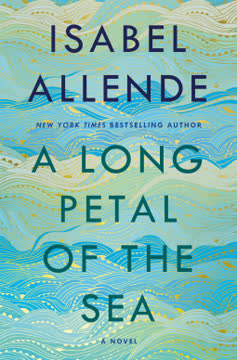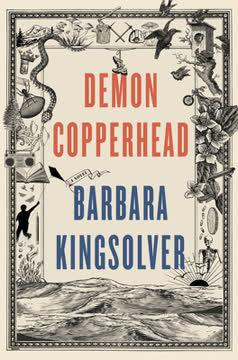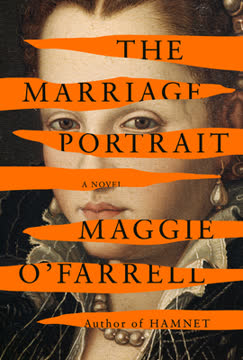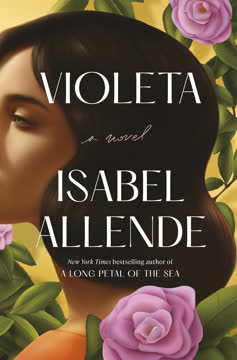Plot Summary
War's End, New Beginnings
In 1939, the Spanish Civil War ends with the defeat of the Republican forces. Victor Dalmau, a medical student turned soldier, is left to navigate the chaos of defeat. His brother Guillem is presumed dead, leaving Victor to care for Roser, Guillem's pregnant partner. Together, they embark on a perilous journey to France, seeking refuge and a fresh start. Despite the dangers, their determination remains unbroken, fueled by the hope of a better future beyond the war-torn landscape of Spain.
Exile's Harsh Realities
In France, Victor and Roser face the grim conditions of refugee camps, where overcrowding, hunger, and disease are rampant. Despite these challenges, Victor dedicates himself to aiding the sick, while Roser gives birth to her son, Marcel. Their resilience is tested, but they find strength in their shared resolve to survive. Amidst the suffering, they hear of an opportunity to emigrate to Chile, a beacon of hope that promises a new beginning and a chance to escape their dire circumstances.
A Ship of Hope
The poet Pablo Neruda orchestrates a plan to transport Spanish refugees to Chile aboard the ship Winnipeg. Victor and Roser seize this opportunity, marrying to secure their passage and ensure Marcel's future. The journey aboard the Winnipeg is a testament to human endurance and solidarity, as the refugees form a community, sharing stories and dreams of a new life. The ship becomes a symbol of hope, carrying them away from the horrors of war toward an uncertain but promising future in a new land.
Arrival in a New World
Upon arrival in Valparaiso, Chile, the refugees are met with unexpected warmth and support. The Chilean people, led by President Pedro Aguirre Cerda, embrace the newcomers, offering them a chance to rebuild their lives. Victor and Roser settle in Santiago, finding work and beginning to integrate into Chilean society. Despite the challenges of adapting to a new culture, they are buoyed by the generosity of their hosts, who see in them the potential to enrich their nation and contribute to its future.
Love and Deception
As Victor and Roser establish their new lives, Victor becomes entangled in a passionate affair with Ofelia del Solar, a young woman from a prominent Chilean family. Their love is intense but fraught with complications, as Victor is still bound to Roser by marriage. Ofelia, engaged to another man, is torn between her duty and her desires. Their clandestine meetings are a dangerous dance, threatening to unravel the fragile stability Victor and Roser have worked so hard to achieve.
Dreams and Disillusionment
As the years pass, Victor and Roser grapple with their identities as exiles. They are haunted by memories of Spain and the loved ones they lost. Roser dreams of pursuing her passion for music, while Victor is determined to complete his medical studies. Their journey is one of resilience and adaptation, as they strive to find their place in a world that is both foreign and familiar. The promise of a new life in Chile is tempered by the lingering shadows of their past, as they navigate the complexities of love, loss, and belonging.
Unexpected Reunion and Revelations
Now a widower, Victor Dalmau lives a quiet life in Chile, reflecting on his past and the love he shared with Roser. His solitude is interrupted by Ingrid Schnake, who claims to be his daughter from a past affair with Ofelia del Solar. This revelation shocks Victor, forcing him to confront unresolved feelings and the impact of his actions. As they talk, Victor learns about Ingrid's life and the circumstances of her adoption, orchestrated by a manipulative priest. This unexpected reunion compels Victor to face his past and its consequences.
A Daughter's Discovery
Raised by a loving adoptive family, Ingrid Schnake always felt different. Her life changes dramatically when she receives a letter from Ofelia del Solar, revealing her as her biological mother. This revelation sets Ingrid on a journey to uncover her origins, leading her to Victor Dalmau. As she pieces together her birth story, Ingrid learns about the deception that separated her from her biological parents. Her quest for identity brings her face-to-face with Victor, and they begin to forge a new relationship, bridging the gap left by years of separation.
The Weight of Secrets
The revelation of Ingrid's existence forces Victor and Ofelia to confront the secrets of their past. Ofelia, who believed her child had died, grapples with guilt and betrayal orchestrated by Father Urbina. Victor reflects on his choices and their unintended consequences. As they navigate these revelations, both must come to terms with the impact of their actions and the possibility of redemption. The weight of these secrets challenges their understanding of love, family, and forgiveness.
A New Family Connection
As Victor and Ingrid spend time together, they begin to build a relationship that fills the void left by years of absence. Ingrid introduces Victor to her family, including her husband and children, who warmly welcome him into their lives. This new connection brings joy and a sense of belonging to Victor, who had long felt the isolation of exile and loss. The discovery of Ingrid and her family offers Victor a chance to experience the love and support of a larger family network, enriching his life in unexpected ways.
Reflections on Love and Loss
With the revelation of Ingrid's existence, Victor reflects on the loves and losses that have shaped his life. He recalls his deep bond with Roser, the enduring love that sustained him through exile and hardship. Victor also revisits his brief but intense affair with Ofelia, acknowledging the complexities of their relationship and the impact it had on their lives. As he contemplates these experiences, Victor gains a deeper understanding of the nature of love, the importance of forgiveness, and the resilience of the human spirit.
The Past and Present Collide
The unexpected reunion with Ingrid and the revelations about his past compel Victor to reconcile with his history. He acknowledges the mistakes and regrets that have haunted him, but also embraces the opportunities for healing and connection that have emerged. As he navigates this new chapter, Victor finds solace in the love of his family and the knowledge that he is not alone. The collision of past and present offers Victor a chance to redefine his legacy and find peace in the twilight of his life.
Characters
Victor Dalmau
Victor is a former medical student and soldier who becomes a refugee after the Spanish Civil War. Haunted by the war's memories, he is a man of few words, deeply affected by the horrors he witnessed. His sense of duty drives him to care for Roser and her child, even as he struggles with his own demons. The unexpected arrival of Ingrid, his daughter from a past affair, forces him to confront long-buried secrets and the impact of his actions. As he navigates this new chapter, Victor seeks redemption and connection, finding solace in the love of his newfound family.
Roser Bruguera
Roser is a talented pianist and the mother of Marcel. Her strength and practicality are her greatest assets as she navigates the challenges of exile. She is fiercely protective of her son and committed to creating a stable life for him in Chile. Roser's relationship with Victor is complex, rooted in mutual respect and shared history, but complicated by the absence of romantic love. Her memory continues to guide Victor as he navigates the challenges of his past and present, offering a source of comfort and inspiration.
Ofelia del Solar
Ofelia is a young woman from a wealthy Chilean family, engaged to Matias Eyzaguirre. Her affair with Victor is a rebellion against the constraints of her privileged life. Ofelia is passionate and impulsive, driven by a desire for freedom and self-discovery. Deceived into believing her child had died, Ofelia grapples with guilt and betrayal as the truth comes to light. Her reunion with Ingrid and Victor forces her to confront the past and seek forgiveness, as she navigates the impact of her choices on her family.
Ingrid Schnake
Ingrid is the biological daughter of Victor and Ofelia, raised by adoptive parents. Her discovery of her true parentage sets her on a journey to uncover her origins and build a relationship with Victor. Ingrid's quest for identity and belonging brings healing and connection to both her and Victor, as they navigate the complexities of their shared history.
Pablo Neruda
Neruda is a renowned Chilean poet who plays a pivotal role in organizing the Winnipeg voyage. His compassion and commitment to justice inspire him to help the Spanish refugees find a new home in Chile. Neruda's influence extends beyond poetry, as he becomes a symbol of hope and solidarity for those seeking refuge from war.
Matias Eyzaguirre
Matias is Ofelia's fiancé, a diplomat with a promising career. He is deeply in love with Ofelia and envisions a future with her, but is unaware of her affair with Victor. Matias represents the stability and tradition that Ofelia feels trapped by, and his presence in her life is a constant reminder of the path she is expected to follow.
Felipe del Solar
Felipe is Ofelia's brother and a friend to Victor and Roser. He is open-minded and progressive, often at odds with his conservative family. Felipe's support is crucial to Victor and Roser's integration into Chilean society, as he helps them find work and navigate the complexities of their new environment.
Aitor Ibarra
Aitor is a Basque driver who helps Victor and Roser escape Spain. His resourcefulness and determination are instrumental in their journey to France and eventual emigration to Chile. Aitor's loyalty to his friends is unwavering, and his presence is a reminder of the bonds formed in times of adversity.
Marcel Dalmau Bruguera
Marcel is the infant son of Roser and Guillem, raised by Victor as his own. He represents the promise of a new generation, free from the burdens of war and exile. Marcel's upbringing in Chile is a testament to the resilience and determination of his parents to provide him with a better life.
Father Vicente Urbina
Father Urbina orchestrated the adoption of Ingrid, deceiving Ofelia and separating her from her child. His actions have far-reaching consequences, impacting the lives of Victor, Ofelia, and Ingrid. As the truth comes to light, Father Urbina's role in the deception is revealed, forcing the characters to confront the weight of his betrayal.
Plot Devices
Exile and Displacement
The experience of exile is a driving force in the narrative, shaping the characters' identities and relationships. The journey from Spain to Chile is both a physical and emotional odyssey, as the characters confront the loss of their homeland and the challenge of building new lives. Exile is portrayed as a state of constant flux, where the past and present coexist, and the search for belonging is a continuous struggle.
Love and Betrayal
The theme of love is explored through the characters' intertwined relationships, marked by passion, loyalty, and deception. Victor's affair with Ofelia and his marriage to Roser highlight the tension between desire and duty, while Ofelia's engagement to Matias underscores the societal expectations that constrain personal freedom. Love is depicted as both a source of strength and a catalyst for conflict, driving the characters to confront their deepest fears and desires.
Hope and Resilience
The narrative emphasizes the resilience of the human spirit, as the characters navigate the challenges of war, exile, and cultural adaptation. The voyage of the Winnipeg symbolizes the hope of a new beginning, while the characters' determination to rebuild their lives in Chile reflects their unwavering commitment to survival. Hope is portrayed as a powerful force that sustains the characters through their darkest moments, inspiring them to persevere and dream of a better future.
Revelation and Reconciliation
The revelation of Ingrid's existence serves as a catalyst for reconciliation and healing. As long-buried secrets come to light, the characters are forced to confront the impact of their actions and seek forgiveness. This plot device drives the narrative, offering opportunities for redemption and connection as the characters navigate the complexities of their shared history.
Analysis
"A Long Petal of the Sea" by Isabel Allende is a poignant narrative that delves into the themes of exile, identity, and the enduring human spirit. Through the journey of Victor and Roser, the novel explores the complexities of displacement and the search for belonging in a foreign land. The characters' intertwined relationships highlight the tension between love and duty, while the revelation of long-buried secrets offers a path to reconciliation and healing. Allende's narrative underscores the resilience of the human spirit, emphasizing the power of hope and the possibility of redemption. The novel serves as a testament to the enduring impact of history on individual lives and the capacity for love and forgiveness to transcend the boundaries of time and place.
Last updated:
FAQ
Synopsis & Basic Details
What is A Long Petal of the Sea about?
- Epic Journey of Exile: A Long Petal of the Sea follows the lives of Victor Dalmau, a young doctor, and Roser Bruguera, a talented pianist, as they flee the Spanish Civil War in 1939. Their forced marriage of convenience to secure passage on the Winnipeg, a ship chartered by Pablo Neruda, transports them and thousands of other Spanish refugees to Chile, a country they know nothing about.
- Building a New Life: The novel chronicles their decades-long struggle to adapt, find work, and raise a family in their adopted homeland, navigating personal losses, political upheavals in Chile (including the 1973 coup), and the enduring longing for their lost Spain. It explores how they forge deep roots in a new land while carrying the indelible marks of their past.
- Love, Loss, and Legacy: Beyond the historical backdrop, the story delves into the complex, evolving relationship between Victor and Roser, Victor's brief but impactful affair with Ofelia del Solar, and the eventual discovery of a hidden daughter, Ingrid. It's a sweeping saga of survival, unexpected love, and the profound search for identity and belonging across generations.
Why should I read A Long Petal of the Sea?
- Historical Immersion Explained: Readers seeking a rich, human perspective on the Spanish Civil War and the 1973 Chilean coup will find this novel deeply engaging. Allende masterfully weaves historical facts with personal narratives, offering a vivid portrayal of displacement and resilience, making the historical context of A Long Petal of the Sea accessible and emotionally resonant.
- Deep Character Motivations Analysis: The book offers a profound exploration of human nature under duress, showcasing characters who evolve dramatically through adversity. It delves into themes of duty, sacrifice, and the many forms love can take, from pragmatic alliance to passionate devotion, providing ample material for character motivations analysis.
- Allende's Lyrical Storytelling: Isabel Allende's signature magical realism, though subtle here, imbues the narrative with a poetic quality, making even the harshest realities beautiful. Her evocative prose and ability to craft compelling, multi-generational sagas ensure a captivating reading experience for fans of literary fiction and historical epics.
What is the background of A Long Petal of the Sea?
- Spanish Civil War Exodus: The novel is rooted in the historical event of the Retreat (La Retirada) in 1939, when nearly half a million Spanish Republicans fled to France after Franco's victory. These refugees faced dire conditions in French concentration camps, a critical historical background of A Long Petal of the Sea.
- Pablo Neruda's Humanitarian Mission: A central historical element is the Chilean poet Pablo Neruda's real-life effort to charter the cargo ship Winnipeg to transport over 2,000 Spanish exiles to Chile. This act of humanitarianism forms the emotional core of the early narrative, highlighting Neruda's role in A Long Petal of the Sea.
- Chilean Political Turmoil: The story spans decades, including the rise of Salvador Allende's socialist government in Chile and its violent overthrow in the 1973 military coup led by Augusto Pinochet. This period of intense political upheaval directly impacts the protagonists, forcing them into a second exile and providing a crucial political context of A Long Petal of the Sea.
What are the most memorable quotes in A Long Petal of the Sea?
- "Our homeland is where our dead are buried.": This poignant quote, often repeated by Carme Dalmau, encapsulates the profound theme of belonging and the search for roots. It highlights the emotional anchor that the deceased provide, suggesting that true home is not just a geographical location but a place of memory and ancestral connection, a key insight into themes in A Long Petal of the Sea.
- "Pain is unavoidable, but suffering is optional.": Uttered by Roser to Victor during their second exile in Venezuela, this philosophical statement reflects her pragmatic resilience and capacity for acceptance. It serves as a powerful mantra for navigating life's hardships, emphasizing mental fortitude over emotional despair, a core aspect of Roser's character analysis.
- "Critics can erase all my poetry if they wish. But this poem, that I recall today, cannot be erased by anyone.": Pablo Neruda's reflection on the Winnipeg voyage underscores the enduring impact of humanitarian acts over artistic accolades. It elevates the rescue of the Spanish refugees to his most significant "poem," highlighting the novel's celebration of compassion and solidarity as lasting legacies.
What writing style, narrative choices, and literary techniques does Isabel Allende use?
- Sweeping Historical Saga: Allende employs a panoramic narrative style, spanning over fifty years and multiple continents, to tell an intimate story against a vast historical backdrop. This choice allows for a deep exploration of how global events shape individual destinies, a hallmark of Isabel Allende's narrative style.
- Third-Person Omniscient Perspective: The narrative largely uses a third-person omniscient point of view, granting readers access to the inner thoughts and feelings of various characters. This technique provides a rich psychological depth and allows for the revelation of secrets and unspoken motivations, enhancing the psychological analysis of characters.
- Symbolism and Foreshadowing: Allende subtly weaves in symbolic elements, such as the recurring motif of the sea representing both escape and uncertainty, and employs foreshadowing through character dialogue and internal monologues. For instance, Marcel Lluis Dalmau's dying prediction of defeat and repression ("We've lost the war, my son") sets a somber tone for the family's future, enriching the symbolism in A Long Petal of the Sea.
Hidden Details & Subtle Connections
What are some minor details that add significant meaning?
- Carme's Smoking and Cough: Carme Dalmau's persistent cough and addiction to cigarettes, initially presented as a personal quirk, subtly foreshadow her eventual death from lung-related illness and her decision to stay behind in Spain. Her constant need for tobacco, even bartering her husband's watch for it, highlights the desperation of wartime shortages and her deep-seated anxieties, adding depth to Carme Dalmau's character analysis.
- The Mule's Sacrifice: Aitor Ibarra's decision to shoot a stranded mule for food during the exodus to France, and the subsequent communal butchering, is a stark detail that underscores the brutal realities of survival. This act, though violent, symbolizes the desperate measures people took to sustain life amidst chaos, reflecting the raw instinct for preservation that defines the refugees' journey and the themes of survival in A Long Petal of the Sea.
- Ofelia's Art Evolution: Ofelia's early "banal little compositions" and later "savage expressionism" paintings, particularly "Militiaman, 1973," subtly track her internal transformation. Her initial frivolous art contrasts sharply with the raw, sensual, and politically charged works she creates after her personal and national upheavals, revealing her artistic journey as a mirror to her emotional and political awakening, a key insight into Ofelia del Solar's character development.
What are some subtle foreshadowing and callbacks?
- Marcel Lluis's Prophecy: Victor's father, Marcel Lluis Dalmau, explicitly states, "We've lost the war, my son," and predicts the "dreadful" repression and "bloodbath" in Catalonia. This direct foreshadowing sets a grim tone for the family's future and validates Victor's later experiences, emphasizing the cyclical nature of political violence and the themes of war and exile.
- Victor's "Broken Heart": During the harrowing evacuation of wounded soldiers, Victor feels "something gave way in Victor's chest. My heart is broken, he told himself." This emotional collapse, described with physical sensation, subtly foreshadows his later medical specialization in cardiology and his lifelong obsession with the heart, linking his personal trauma to his professional calling and offering a deeper Victor Dalmau character analysis.
- The "Long Petal" Metaphor: Neruda's description of Chile as "a long petal of sea and wine and snow" is introduced early in the narrative, but its full significance as the novel's title and a symbol of Chile's unique, isolated, yet beautiful identity only fully resonates as the characters integrate and form deep roots there. This recurring phrase acts as a callback to their initial journey and their eventual belonging, highlighting Chile's symbolism in A Long Petal of the Sea.
What are some unexpected character connections?
- Jordi Moline's Catalan Kinship: Jordi Moline, the shoemaker and Victor's business partner, initially seems a minor character, but his shared Catalan heritage and widower status create an unexpected bond with Carme Dalmau. Their eventual cohabitation and mutual care in old age highlight the importance of cultural ties and found family in exile, offering a poignant supporting character analysis and exploring themes of community and belonging.
- Elisabeth Eidenbenz's Enduring Impact: Elisabeth, the Swiss nurse Victor briefly loved, reappears as a crucial figure who saves Roser and Marcel from the French camps. Her continued humanitarian work, even after the war, and her eventual role in reuniting Carme with her family, demonstrate a far-reaching, quiet heroism that transcends borders and time, revealing her as a consistent force for good and a subtle catalyst for plot development.
- Valentin Sanchez's Patronage: The Venezuelan ambassador, Valentin Sanchez, becomes Roser's patron for the Ancient Music Orchestra. This connection, initially professional, evolves into a deep friendship and a source of emotional and financial support for Roser's artistic ambitions. His character highlights the global network of solidarity among intellectuals and artists, and provides a safe haven for Roser's creative expression, a significant relationship dynamic in A Long Petal of the Sea.
Who are the most significant supporting characters?
- Juana Nancucheo, the Steadfast Housekeeper: Juana, the Mapuche housekeeper for the del Solar family, is far more than a servant; she is the family's moral compass and keeper of secrets. Her unwavering loyalty, particularly to Felipe and later to Leonardo and Ofelia, and her role in uncovering Ingrid's true parentage, make her indispensable. Her character subtly critiques class structures and highlights indigenous resilience, offering a rich Juana Nancucheo character analysis.
- Aitor Ibarra, the Lucky Survivor: Aitor, the Basque ambulance driver, embodies resourcefulness and unwavering loyalty. His "good luck" and ability to navigate danger are crucial in the Dalmaus' escape from Spain. His later success in Venezuela and his secret, passionate affair with Roser reveal a complex character who finds joy and love despite a life of hardship, adding depth to Aitor Ibarra's motivations.
- Father Vicente Urbina, the Manipulative Confessor: Father Urbina, Ofelia's spiritual guide, is a chilling representation of institutional power and moral corruption. His orchestration of Ingrid's adoption and his subsequent manipulation of Ofelia's guilt reveal the darker side of religious authority. His character is central to the novel's themes of deception and the abuse of power, driving much of the later plot concerning Ingrid Schnake's origins explained.
Psychological, Emotional, & Relational Analysis
What are some unspoken motivations of the characters?
- Victor's Need for Purpose: Beyond duty, Victor's relentless work in medicine and his later volunteer efforts in the shantytown are driven by an unspoken need to combat the overwhelming suffering he witnessed in war. His dedication is a form of self-preservation, a way to find meaning and avoid the despair that threatens to consume him, offering a deeper Victor Dalmau motivation analysis.
- Roser's Pragmatic Love: Roser's decision to marry Victor, and her later commitment to their "marriage of convenience," is motivated by a deep-seated pragmatism and a desire for stability for Marcel. Her love for Guillem is singular, but her affection for Victor grows from shared hardship and mutual respect, revealing a nuanced understanding of love as a choice and a partnership, a key aspect of Roser Bruguera's emotional journey.
- Ofelia's Rebellion Against Convention: Ofelia's affair with Victor, and her later pursuit of art, are unspoken acts of rebellion against the stifling expectations of her aristocratic family and Chilean society. Her impulsiveness and desire for freedom, though initially appearing frivolous, are deeply rooted in a yearning for authenticity and self-expression beyond her prescribed role, providing insight into Ofelia del Solar's psychological complexities.
What psychological complexities do the characters exhibit?
- Victor's Stoic Trauma Response: Victor exhibits a profound psychological complexity rooted in his war trauma. His introversion, emotional guardedness, and tendency to internalize pain are coping mechanisms developed from witnessing immense suffering. His later "melancholy periods" and the "cold hollow in his chest" reveal the lasting impact of his experiences, even as he strives for a rational, scientific approach to life, a deep dive into Victor Dalmau's psychological state.
- Roser's Resilient Realism: Roser's psychological makeup is characterized by an extraordinary realism and an almost defiant refusal to dwell on the past or idealize what is lost. This "tank-like determination" allows her to adapt and thrive, but also means she suppresses deep emotional wounds, only revealing her vulnerability in moments of extreme stress or illness, highlighting her resilience and emotional fortitude.
- Ofelia's Suppressed Sensuality and Guilt: Ofelia struggles with a sensuality she cannot identify or reconcile with her strict Catholic upbringing. Her initial affair with Victor is an impulsive act of self-discovery, but the subsequent pregnancy and forced adoption lead to profound guilt and a sense of being "ruined." Her later artistic expression, particularly her erotic paintings, becomes an outlet for this suppressed passion and unresolved trauma, offering a complex Ofelia del Solar character study.
What are the major emotional turning points?
- Victor's "Broken Heart" in the Retreat: The moment Victor feels his "heart is broken" during the chaotic evacuation from Barcelona marks a profound emotional turning point. It signifies the shattering of his youthful idealism and the full realization of war's devastating human cost, transforming him from a detached observer to someone deeply scarred, a critical point in Victor Dalmau's emotional development.
- Roser's Decision to Marry Victor: Roser's pragmatic agreement to marry Victor, despite her love for Guillem, is a pivotal emotional decision. It represents her commitment to survival and to Marcel's future, prioritizing security over romantic love. This choice lays the foundation for their unique, enduring bond, highlighting the evolution of relationships in A Long Petal of the Sea.
- Ofelia's Unshakable Decision to Keep Her Child: Despite family pressure and Father Urbina's manipulation, Ofelia's sudden, fierce determination to raise her child ("You can forget about adoption, Father Urbina") is a powerful emotional turning point. It signifies her reclaiming agency and rejecting societal shame, even though she is ultimately deceived, revealing her deep maternal instinct and a moment of profound defiance, a key to understanding Ofelia's motivations.
How do relationship dynamics evolve?
- Victor and Roser: From Convenience to Profound Love: Their relationship begins as a pragmatic alliance, a "marriage of convenience" to survive exile. Over decades, through shared hardships, raising Marcel, and mutual support, their bond deepens into an "unshakable affection" and a profound, unspoken love. The revelation of Roser's affair with Aitor, and Victor's jealousy, paradoxically solidifies their connection, transforming it into a conscious, passionate partnership in their later years, a central relationship analysis in A Long Petal of the Sea.
- Victor and Ofelia: A Fleeting, Destructive Passion: Their affair is intense and impulsive, driven by mutual attraction and Ofelia's rebellion. However, it is built on secrecy and a fundamental misunderstanding of each other's worlds. Ofelia's pregnancy and subsequent abandonment of Victor, fueled by family pressure and her own immaturity, reveal the destructive potential of their class divide and lack of communication, highlighting the themes of love and betrayal.
- Victor and Marcel: Adoptive Fatherhood's Enduring Bond: Victor steps into the role of father to Marcel out of duty, but their relationship evolves into one of deep, unconditional love. Marcel's quiet nature and Victor's protective instincts create a strong, unspoken bond that transcends biological ties. Marcel's eventual return to Chile to support his parents, and his concern for Victor's well-being, demonstrate the enduring strength of this chosen family, a powerful example of family dynamics in A Long Petal of the Sea.
Interpretation & Debate
Which parts of the story remain ambiguous or open-ended?
- Carme Dalmau's True Fate: While Victor and Roser assume Carme died during the Retreat, her reappearance in Andorra years later leaves her initial disappearance ambiguous. The narrative doesn't fully detail her journey or the exact circumstances of her survival, leaving readers to ponder the extent of her suffering and the choices she made to endure, adding to the mystery of Carme Dalmau's story.
- The Extent of Ofelia's Awareness: The novel suggests Ofelia was heavily sedated during and after childbirth, leading her to believe her baby died. However, her later artistic expression and the intensity of her paintings, particularly "Militiaman, 1973," could be interpreted as a subconscious processing of her trauma and loss, leaving open the question of how much she truly knew or suspected about Ingrid's adoption, a point of interpretive debate in A Long Petal of the Sea.
- The Nature of Victor's "Melancholy": Victor's recurring bouts of melancholy are attributed to war trauma and later to Roser's absence. However, the narrative leaves the deeper psychological roots of this sadness somewhat open-ended. Is it an inherent part of his personality, a consequence of his stoicism, or a lingering effect of his unfulfilled love for Elisabeth and Ofelia? This ambiguity invites readers to ponder the lasting impact of his life's journey on his inner world, a key aspect of Victor Dalmau's psychological analysis.
What are some debatable, controversial scenes or moments in A Long Petal of the Sea?
- Father Urbina's Deception and Baby Trafficking: The most controversial aspect is Father Vicente Urbina's systematic deception and the forced adoption of babies, including Ingrid. His actions, justified by "protecting family honor" and preventing "mortal sin," highlight the dark side of religious authority and societal pressures. This raises ethical questions about the Church's role in controlling women's bodies and lives, sparking controversy in A Long Petal of the Sea and a critical Father Urbina character analysis.
- Ofelia's Abandonment of Victor and Her Child: Ofelia's abrupt and cold letter to Victor, ending their affair and concealing her pregnancy, is a debatable moment. While later explained by her family's coercion and her own immaturity, her initial lack of empathy and her decision to prioritize social standing over her child's fate can be seen as a betrayal, prompting discussions on personal responsibility versus societal constraints, a key point for Ofelia del Solar's motivations.
- Victor and Roser's "Open" Marriage and Infidelity: The revelation of Roser's long-term affair with Aitor Ibarra, and Victor's own "insignificant" infidelities, challenges conventional notions of marriage. While presented as a mature, unspoken understanding in their "marriage of convenience," it can be debated whether this arrangement truly fostered happiness or merely suppressed deeper emotional needs, offering a complex relationship dynamics analysis.
A Long Petal of the Sea Ending Explained: How It Ends & What It Means
- Reconciliation and Found Family: The novel concludes with Victor, at eighty, discovering his daughter Ingrid, born from his affair with Ofelia. This unexpected reunion brings him a new family—Ingrid, her husband, children, and grandchildren—filling the void left by Roser's death and Marcel's independence. This ending signifies a profound reconciliation with his past and the unexpected joy of a newfound legacy, providing a complete A Long Petal of the Sea ending explained.
- Roots in the Adopted Land: Victor realizes that despite his longing for Spain, his "deep roots" are now firmly in Chile, thanks to his family and experiences there. His connection to Ingrid and her Chilean family solidifies his belonging, ironically linking him to the very del Solar family who initially opposed the refugees. This emphasizes the novel's central theme of finding home not in origin, but in the life built and the connections forged, a powerful themes in A Long Petal of the Sea conclusion.
- Acceptance and Continued Journey: Victor's final decision to embrace life, including the possibility of a new relationship with Meche, signifies his acceptance of change and his refusal to succumb to solitude. The ending is not a definitive closure but a continuation, suggesting that life, even in old age, offers new adventures and opportunities for love and connection. It reinforces the idea that the human spirit, like the "long petal of the sea," endures and adapts, always sailing onward, a hopeful Victor Dalmau's journey explained.
Review Summary
A Long Petal of the Sea is a historical fiction novel praised for its rich storytelling and exploration of exile, love, and resilience. Set against the backdrop of the Spanish Civil War and Chile's political turmoil, it follows Victor and Roser's journey as refugees. Many readers appreciated Allende's vivid portrayal of historical events and complex characters. Some found the narrative dry or overly focused on historical details, while others were deeply moved by the epic story spanning decades. Overall, reviewers commended Allende's masterful writing and the book's timely themes.
Similar Books
Download PDF
Download EPUB
.epub digital book format is ideal for reading ebooks on phones, tablets, and e-readers.






















